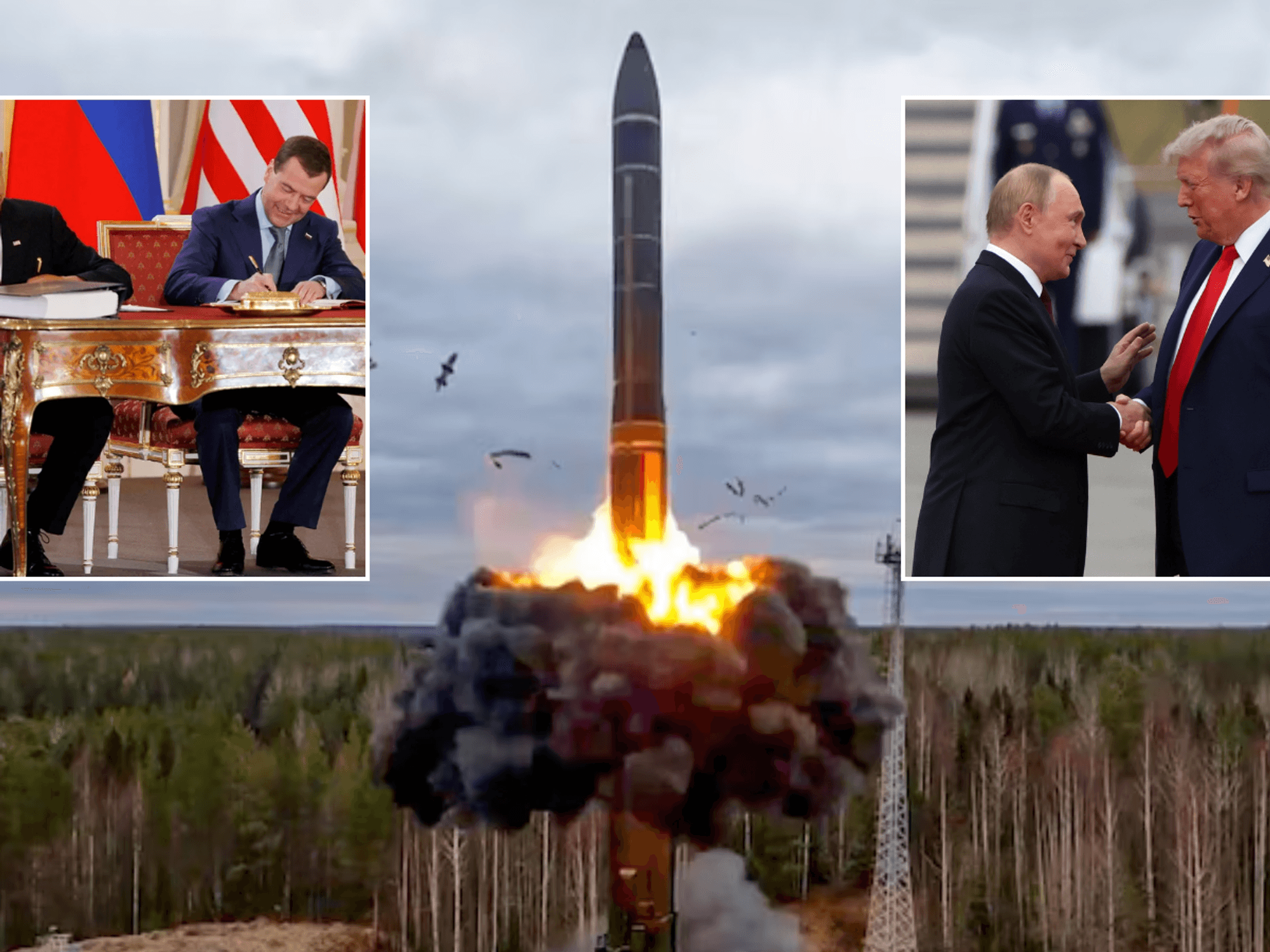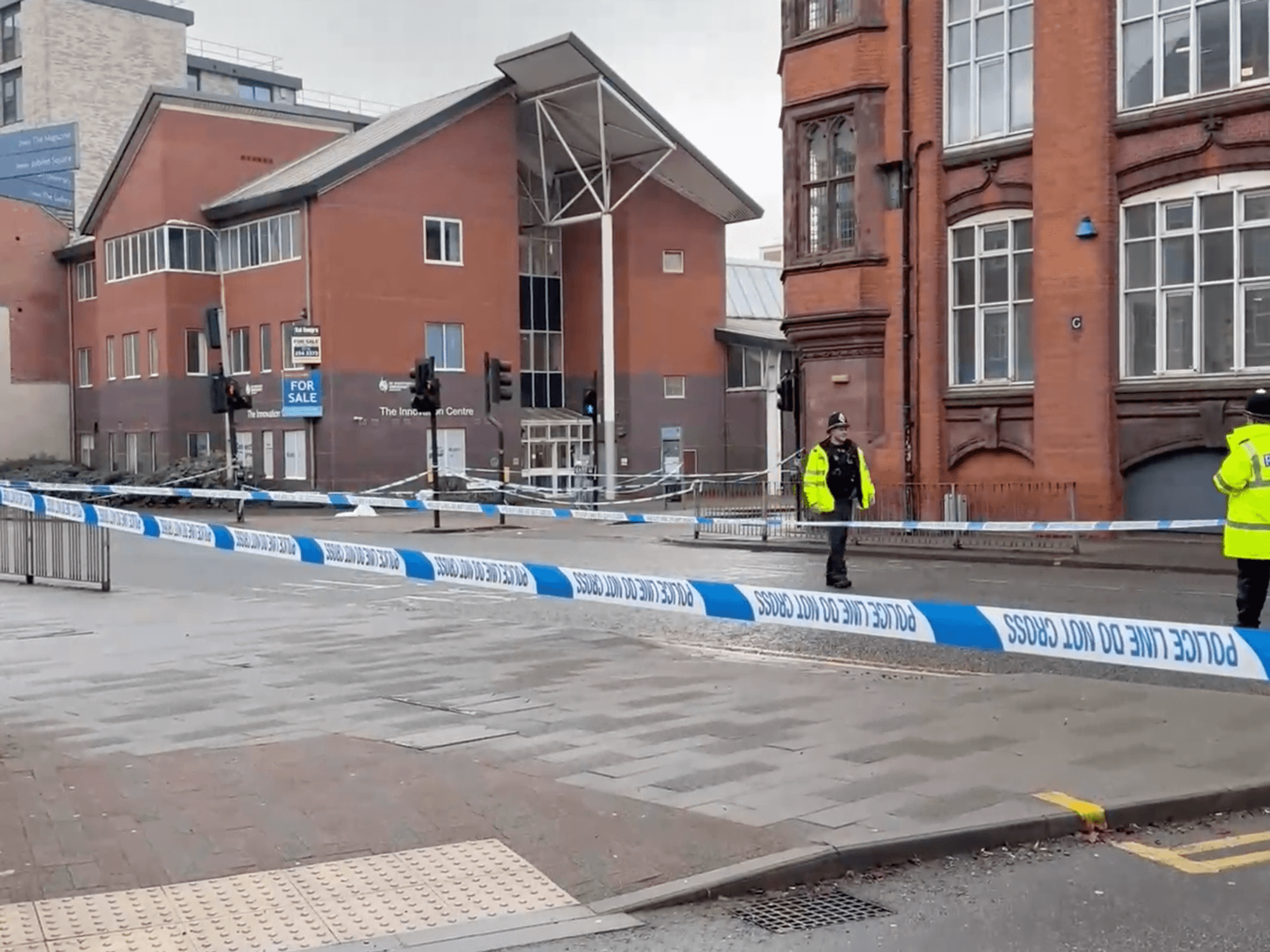Keir Starmer's recognition of Palestine just made Gaza more dangerous. Dominoes will fall - Philip Lester

Ex-MI6 boss lashes out at Labour's 'ridiculous decision' to recognise Palestine |
GB
This symbolic gesture risks amplifying insecurity for Israelis and Palestinians alike, writes retired Air Vice-Marshal Philip Lester
Don't Miss
Most Read
Trending on GB News
Sir Keir Starmer recognised Palestinian statehood this weekend. Such a rush to implement a binary two-state settlement may look, at first glance, like a straightforward moral and diplomatic fix.
In reality, however, it risks amplifying insecurity for Israelis and Palestinians alike, unsettling an already volatile Middle East and undermining longer-term prospects for stability and prosperity.
Several linked strategic dangers - political, military and humanitarian - would argue strongly for caution rather than hasty recognition.
First, recognition without the hard foundations of statehood (clear borders, an accountable government, monopoly of force, and functioning institutions) hands a powerful propaganda and operational victory to armed Islamist actors.
Hamas, Hezbollah and their backers have proven resilient and adaptable; a nominal Palestinian state that lacks effective governance or disarmament simply gives these groups new terrain, time and strategic space from which to organise, recruit and claim legitimacy.
That is not hypothetical: Iran’s strategy of using proxy actors throughout the region to advance its influence, most notably Hamas and Hezbollah, has been a consistent feature of the past decade and has already contributed to wider regional conflagrations.
Second, geography and demographics complicate the picture. Central and eastern Jerusalem remain an unresolved elephant in the room for any partition plan; many Palestinians, including significant political constituencies, will not accept a truncated sovereignty that leaves holy sites and symbolic centres outside their control.
 Keir Starmer's recognition of Palestine just made Gaza more dangerous. Dominoes will fall - Philip Lester |
Keir Starmer's recognition of Palestine just made Gaza more dangerous. Dominoes will fall - Philip Lester | Getty Images
At the same time, a Palestinian polity whose borders are porous or contested would sit beside Israel as an open front.
That opens the prospect of Islamist groups operating right up against and possibly through the frontiers of Jordan, Saudi Arabia and Egypt — states that have already signalled extreme reluctance to import Hamas into their territories by offering mass asylum to the Gazan population.
Those neighbouring capitals worry about contagion: spillover refugees, the entry of armed militants, a resurgent organic-based anti-liberal rhetoric, along with the political costs of harbouring groups they see as subversive. History and recent events show these are realistic fears, not merely diplomatic talking points.
Third, recognition as an isolated diplomatic act will not achieve the core security outcomes many proponents promise.
Granting statehood will not in itself bring Israeli hostages home, nor will it compel Iran, Hezbollah, Hamas or even parts of the Palestinian political spectrum to accept Israel’s legitimacy as a sovereign state, let alone the Jewish Homeland. It will certainly not serve as a catalyst to disarm.
The hard reality is that recognition is a political signal and one that must be rooted in a clear and realisable strategic objective; it must not be performative, and it cannot substitute for the coercive and reconciliatory measures that a durable peace requires.
These include the defeat and total disarmament of terrorist groups, enforceable security arrangements, and a Palestinian polity willing and able to exercise effective sovereign control over its territory.
Absent such recognition risks “freezing” or even “over-heating” an already protracted conflict in a different, equally dangerous form.
Fourth, the domino effects across the wider Middle East deserve careful thought. A premature recognition and two-state configuration could intensify regional polarisation: Iran and its allies may redouble proxy activity to keep pressure on Israel and to undermine a state that they view as compliant with Western objectives; Gulf states and Egypt may harden their border and security postures; and global powers may be drawn into an escalatory cycle of intervention.
Scholarly and policy analyses warn that without a negotiated, enforceable framework, including the necessary mechanisms to prevent infiltration, to secure borders and to manage refugees, a declared Palestinian state may become a centre of instability rather than of peace.
 Sir Keir used a social media post to make the announcement | X / KEIR STARMER
Sir Keir used a social media post to make the announcement | X / KEIR STARMERFifth, the rush by certain European governments to recognise Palestine is largely driven by domestic politics and symbolic posturing rather than by a coherent strategy for conflict resolution. That dynamic matters because it shapes both the timing and the content of external pressure.
If recognition is used as a short-term signalling device to domestic electorates, without commensurate investment in security architecture, institution-building, and conditionality, it is likely to create perverse incentives: it could embolden militant actors who benefit from chaos, fragment Palestinian governance further, and leave Israel feeling isolated and vulnerable.
Recent debates within European capitals illustrate how domestic electoral pressures and concerns about immigration and Islamist politics are entangling foreign policy choices.
Moreover, whatever the European states decide, they need to see it through…and let’s face it, there is not a good track record of strategic stamina or patience here; we just need to look back at Iraq and Afghanistan for lessons.
Strategic patience and stamina in support of a key ally who is fighting a complex anti-terror war should be the focus of Western powers, along with a determination to provide support to others in the region who are likely to play a more effective role in conflict termination and post-conflict resolution.
Finally, the moral and political case for Palestinian recognition is an important geo-strategic issue; the question is its method and sequencing.
Jumping to a hasty and ill-thought-out performative solution, without understanding the outcome of the conflict and the basis for post-conflict reconstruction, is premature and flawed.
The prerequisite to any sustainable settlement must be the defeat and demilitarisation of Hamas as an organising political entity, along with the creation of credible Palestinian institutions that can govern, provide services and prevent militias from exploiting statehood.
Only then can negotiations over post-conflict structures, processes, borders and refugee arrangements take place and have a real chance of success.
A proper method and sequence constructed in partnership with Israel and its Arab neighbours will ensure the right conditions are set for success.
To skip those steps and treat recognition as a unilateral corrective to conflict suffering risks prolonging violence, entrenching humanitarian catastrophe and producing a new status quo that is worse for everyone.
In short, recognition now, divorced from enforceable security guarantees and institutional readiness, plays into the hands of hardliners.
It is a high-risk shortcut that promises symbolic satisfaction to some international actors but does little to resolve the central problems on the ground.
A durable pathway requires a long-game strategy that ties recognition to disarmament, governance reform, credible international security guarantees and carefully negotiated borders — not a standalone diplomatic headline that leaves the region more dangerous and its peoples less secure.
Our Standards: The GB News Editorial Charter
More From GB News










